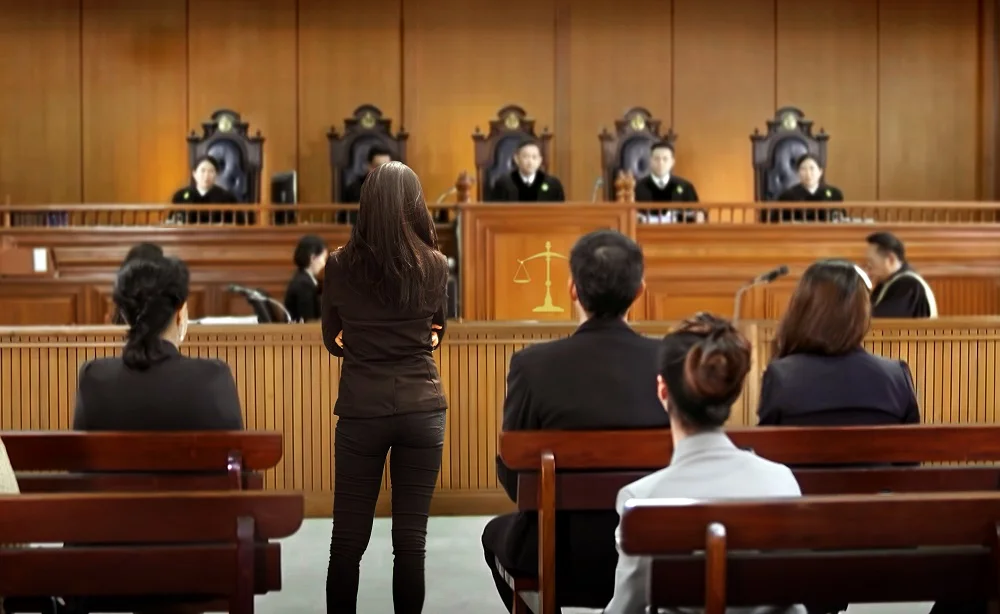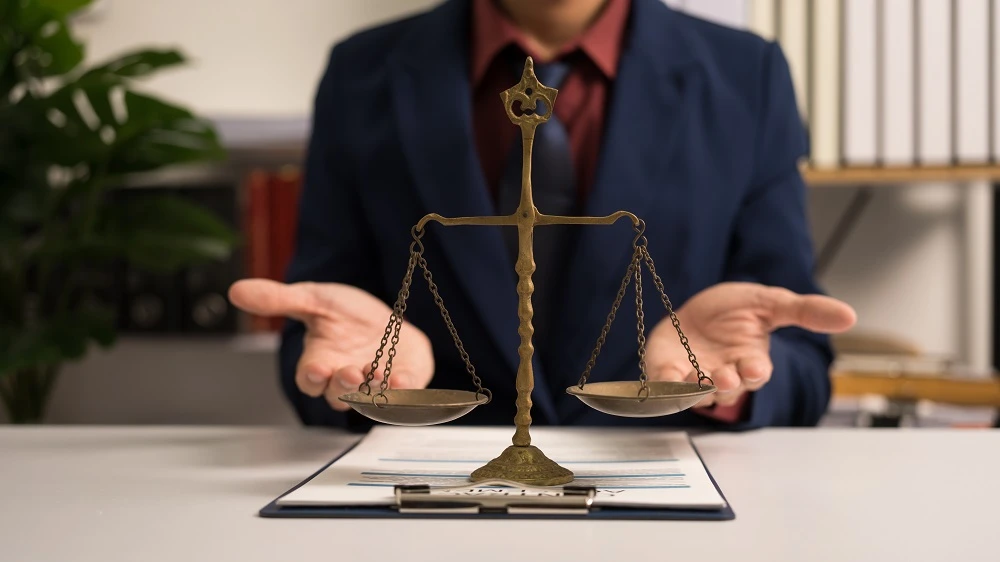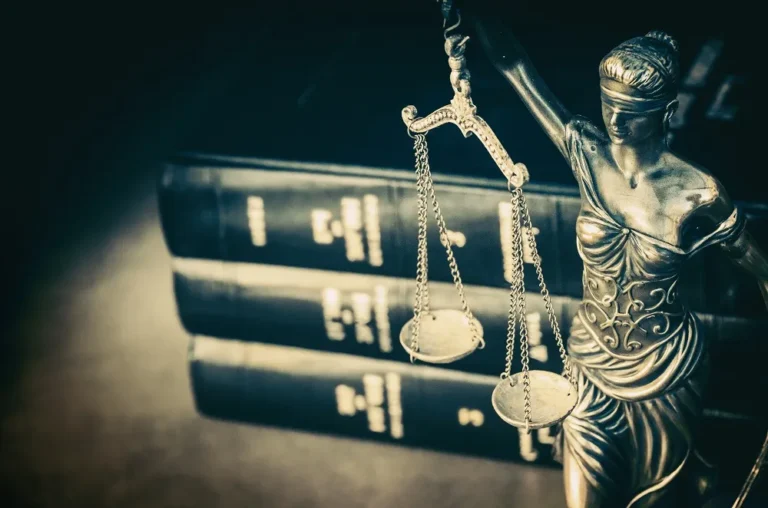When reviewing the court’s records about your case, you see that its status has been set to “disposed”. But what does a disposed case mean, exactly, and what is a disposed charge? Understanding this term and how a case reaches a disposed status can help you better understand what happens next.
A disposed case is not necessarily one that has gone away, nor does it mean you cannot face any further consequences in the matter. A skilled Dayton criminal defense attorney can still assist you, especially if your case is reopened. Your lawyer can also explore whether your disposed case is eligible for expungement.
What Does Disposition Mean in Law?

So what does a disposed case mean in terms of the law? Although the legal term might sound technical, the answer is surprisingly straightforward. A disposed case is simply one that is considered closed by the court because the complaint or charges have been resolved in some manner.
There are several ways a criminal case can receive a disposed status. There can be a trial that results in a verdict, or the prosecution and defendant can reach a plea deal. Prosecutors can also choose to dismiss criminal cases at any time. In rare situations, a court can also dismiss a criminal case for prosecutorial misconduct.
“Disposed” does not mean the case cannot be reopened later on. Actions like violating probation, securing a favorable appeal, or trying to expunge the conviction can all result in the need for additional proceedings.
Misconceptions About Dismissing Criminal Charges
Differentiating between dismissed vs. disposed charges can cause some confusion. A dismissal is often a prosecutor-initiated disposition. What does “disposed by prosecutor” mean? This phrase indicates that it is the prosecutor, not a judge or jury, who starts and completes the process.
The prosecutor, not the crime victim or defendant, decides whether to dismiss a charge. While a court can dispose of a criminal case by dismissing it, the circumstances under which it is allowed to do so are extremely limited.
Types of Disposal in Legal Cases

There are several ways civil and criminal cases can be disposed of in Ohio. Although each type of disposal is entered under different circumstances, any disposal signifies a final action or finding that eliminates the need for further proceedings.
Dismissal with or Without Prejudice
The prosecutor or plaintiff can choose to dismiss their case at any time. If the prosecutor lacks the evidence, a dismissal might be entered. This dismissal is usually without prejudice, meaning the case or charges can be refiled later.
Under certain conditions, a court can dismiss a pending case with prejudice. For example, a court may dismiss a case with prejudice if the prosecution withheld exculpatory evidence. Either type of dismissal is considered a disposition.
Judgments

A judgment in a case is entered when the court finds the defendant liable to the plaintiff for damages. This court order requires the defendant to pay the damages ordered by the court. Once this judgment is entered, the case becomes disposed, even if the defendant will continue to make payments for some time.
Pleas of Guilty or No Contest
When facing criminal charges, your plea and sentencing will dispose of your case. Pleading guilty means you admit you committed the offenses you are charged with. A plea of no contest means you are not disputing the prosecutor’s evidence or that a judge or jury could find you guilty.
A Guilty or Not Guilty Verdict
Disposition also happens when a judge or jury renders a guilty or not guilty verdict. Either one reflects a determination of liability based on evidence. When a not guilty verdict is returned, you are discharged from any further liability for those charges, and the case is considered disposed.
If the court returns a guilty verdict, the case will proceed to sentencing. The court disposes of your case by pronouncing its sentence. You might then find yourself wondering, “If my case is closed, am I still on probation?” Your case’s disposed status merely reflects that no further court hearings are needed.

You likely have questions about what the future holds and how your case might be disposed. Your lawyer from Gounaris Abboud can answer these questions and help you pursue the most favorable disposition possible.
What Happens After Case Status Is Disposed?
The disposal date means the day on which your case moves from an active to a disposed status in the court’s system. Once a case’s status is updated to disposed, no future court hearings are scheduled. Instead, the final orders of the court are carried out. If you were convicted and sentenced, you must still comply with that sentence.
Can you reopen a case after pleading guilty or being found guilty? It is possible for a disposed case to be reactivated and for hearings to resume. This typically happens if you violate your sentence or successfully appeal your conviction or sentence.
Does a disposed case stay on your record? Having your case moved to a disposed status does not impact your conviction. If you were found guilty, that conviction would still appear on your criminal record.
What Are the Potential Penalties for an Ohio Criminal Charge?

Ohio’s criminal laws lay out how a court can sentence you for committing a criminal offense and dispose of your case. For example, you could be fined and ordered to pay court costs and other fees. If a victim sustained property damage or other harm, you would be ordered to pay them restitution.
For misdemeanor and felony offenses, the court can also order you to serve time in prison or jail. Alternatively, the court could suspend this portion of your sentence and order you to complete a probation program. The length of your probation and the conditions you must follow would depend on the crime you committed.
Beyond probation and jail time, your sentencing judge could also order you to:
- Perform community service
- Attend drug or alcohol treatment
- Participate in special groups or classes like AA and NA
- Fulfill other similar special conditions
If you serve any time in prison, you could also be supervised on parole for a period of time once you finish your sentence and are released.
Do I Need a Dayton Criminal Defense Lawyer for the Disposition of My Case?

Every case will eventually reach a disposition. The type you receive and how it impacts you can depend on whether you have knowledgeable legal counsel. A lawyer can review the evidence, formulate a defense strategy, and pursue a disposition that’s favorable to your interests.
Can you reopen a case after pleading guilty or reaching some other disposition? There are several reasons why your case might be reopened, and an attorney can ensure your rights are protected in these situations. Therefore, a Dayton criminal defense attorney can be helpful even after the initial disposition.
After your case is disposed, especially if you seek to expunge your conviction or arrest, you may have questions such as, “Can a disposed case be expunged?” or “Can an expunged case be reopened?”. Once your lawyer has reviewed your case and its current status, they can provide definitive answers and help you pursue expungement.
Final Thoughts on Disposed Cases
Although disposition is a routine step in any criminal case, the way it reaches this stage and how it is disposed can have consequences for you. No-contest pleas and guilty verdicts can lead to probation, fines, or even incarceration. Conversely, dismissals or an IILC can keep a criminal conviction off your record.
Contact attorneys from Gounaris Abboud, and we will do more than provide you with information about your options for disposing of your case. Your legal team from Gounaris Abboud will be there with you at all stages of your case to help you minimize the impact of an unfavorable disposition.




